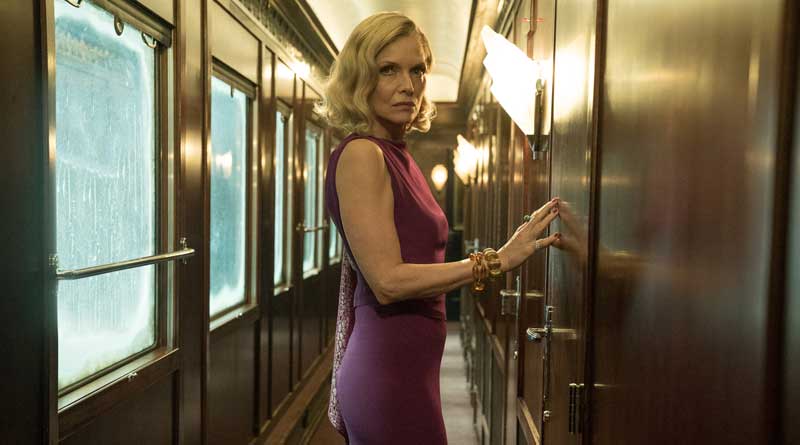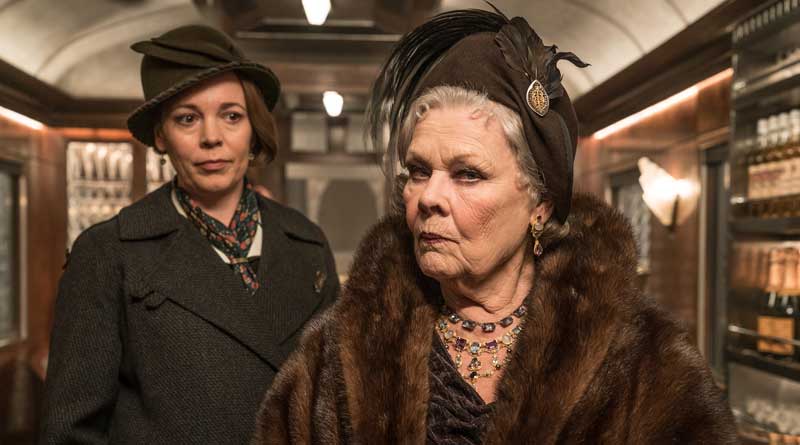Murder on the Orient Express (2017) Review
When a murder takes place on the Orient Express, famous Belgian detective Hercule Poirot (Kenneth Branagh) is forced to find out who’s the murderer among the passengers.
If there is an Oscar for Best Moustache, Kenneth Branagh would be a shoo-in favourite to win the award. In fact, for all the moustaches that appeared in different iterations of the famous Belgian detective, Hercule Poirot on both big-screen and TV adaptations (Albert Finney, Peter Ustinov, Alfred Molina and David Suchet), Branagh’s facial hair easily ranks as the ultimate scene-stealer. You see, when a moustache upstages everything else that displayed on the screen, you’ll know something is not right. And that’s exactly how I felt after watching the star-studded remake of 1974’s Sidney Lumet’s equally starry Murder on the Orient Express. Both movies, of course, are adapted from Agatha Christie’s acclaimed 1934 novel of the same name.

At first glance, this 2017 version is almost impossible to ignore. It is more so if you are either fans of the all-star ensemble cast or Hollywood cinema in general. Branagh, who also produced and directed the remake, has no doubt lined up the best all-star cast of the year. Apart from Branagh himself, the cast includes Michelle Pfeiffer, Johnny Depp, Willem Dafoe, Judi Dench, Penelope Cruz and rising star Daisy Ridley. With a cast like that, this looks like another Oscar-worthy moment that previously earned the 1974 version six nods with a Best Supporting Actress win by Ingrid Bergman.
Although this 2017 version is likely to secure a few Oscar nods (my bet would be technical awards), Branagh’s re-telling of Agatha Christie’s celebrated murder mystery feels strangely hollow. Most of the cast here give either decent or mediocre performances (I’m looking at you both, Judi Dench and Penelope Cruz). If there are any actors worth mentioning here, Branagh manages to capture the eccentric charm of Hercule Poirot while Johnny Depp made good use of his limited screen time as the sleazy gangster, Mr Ratchett.

As for the plot, Michael Green’s adapted screenplay is fairly faithful to Agatha Christie’s novel with the exception of few changes. For instance, Green includes an introductory scene of Poirot solving a case of a stolen relic in Jerusalem. It was a notable improvement that showcases Poirot’s amazing detective skills instead of a mere aftermath appeared in both Christie’s novel and the 1974 version. While the fundamental element of this murder mystery remains the same, Green’s screenplay focuses too much on Poirot but less invested on the suspects inside the train. Which is why by the time the mystery reveals towards the end, it doesn’t feel as intriguing or shocking as it should be.
Technically speaking, Murder on the Orient Express is a mixed bag. Branagh’s decision to shoot the movie on 65mm is a nice touch, as evidently seen in Haris Zambarloukos’ exquisite and sometimes majestic cinematography.

The movie is also blessed with Branagh’s cinematic flair for different cameraworks such as the impressive tracking shot where he enters the Orient Express and an overhead shot within the cramped space of the train corridor, which is used to great effect during the offscreen discovery of a passenger’s dead body. The interior outlook of the Orient Express itself is a wondrous sight, while Alexandra Byrne’s opulent costume design is equally top-notch. But at the same time, the otherwise scenic views of both interior and exterior of the Orient Express as well as the snowy landscape tends to ruin by obvious CGI.
At the time of writing, it is reported that 20th Century Fox has greenlit the follow-up to Murder on the Orient Express, with Branagh expected to return as both actor and director in the next Agatha Christie’s murder mystery, Death on the Nile. Although Murder on the Orient Express is far from a great movie, it remains a refreshing antidote to see an old-fashioned whodunit still has its place in the current Hollywood age of superhero genre and franchise revivals.





